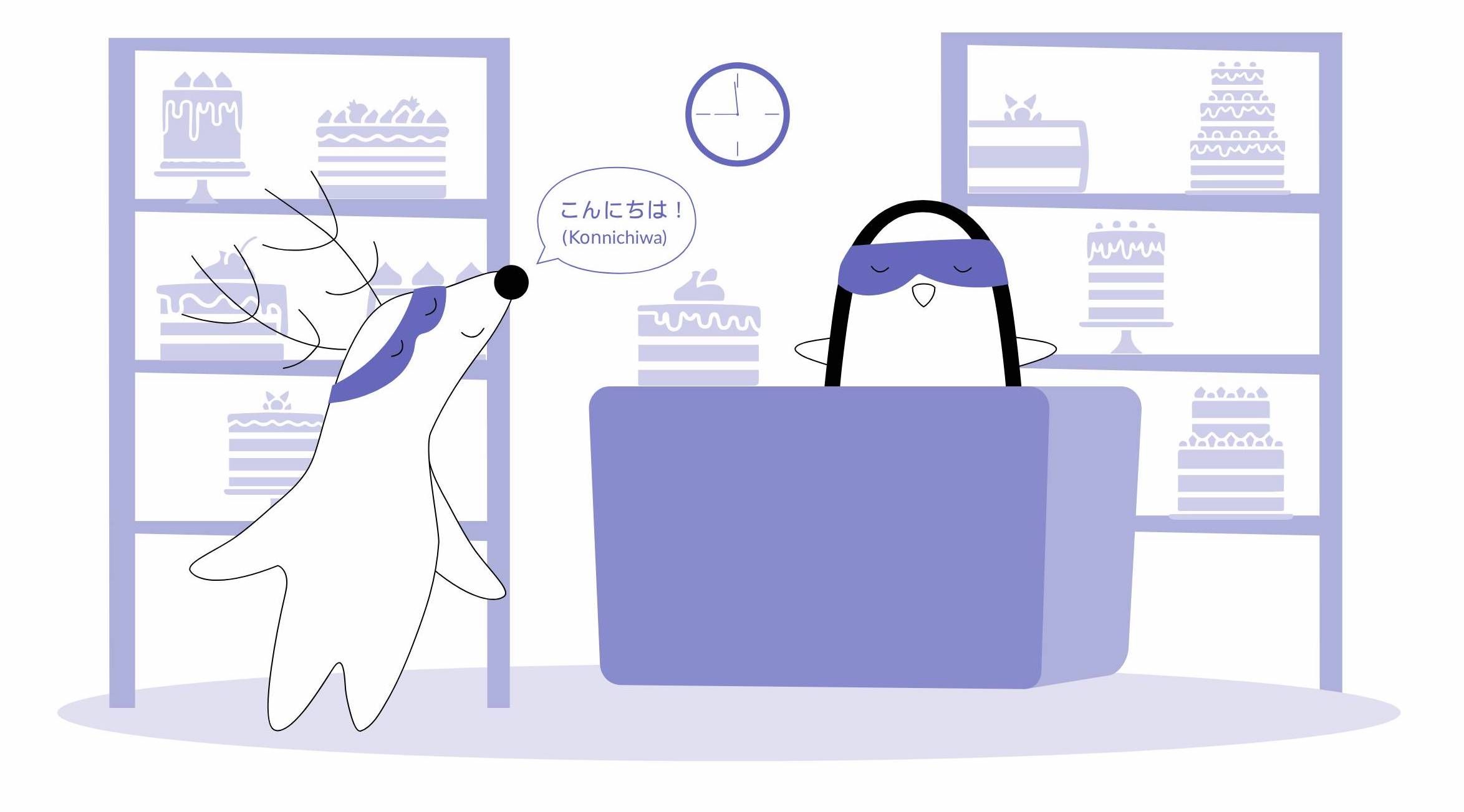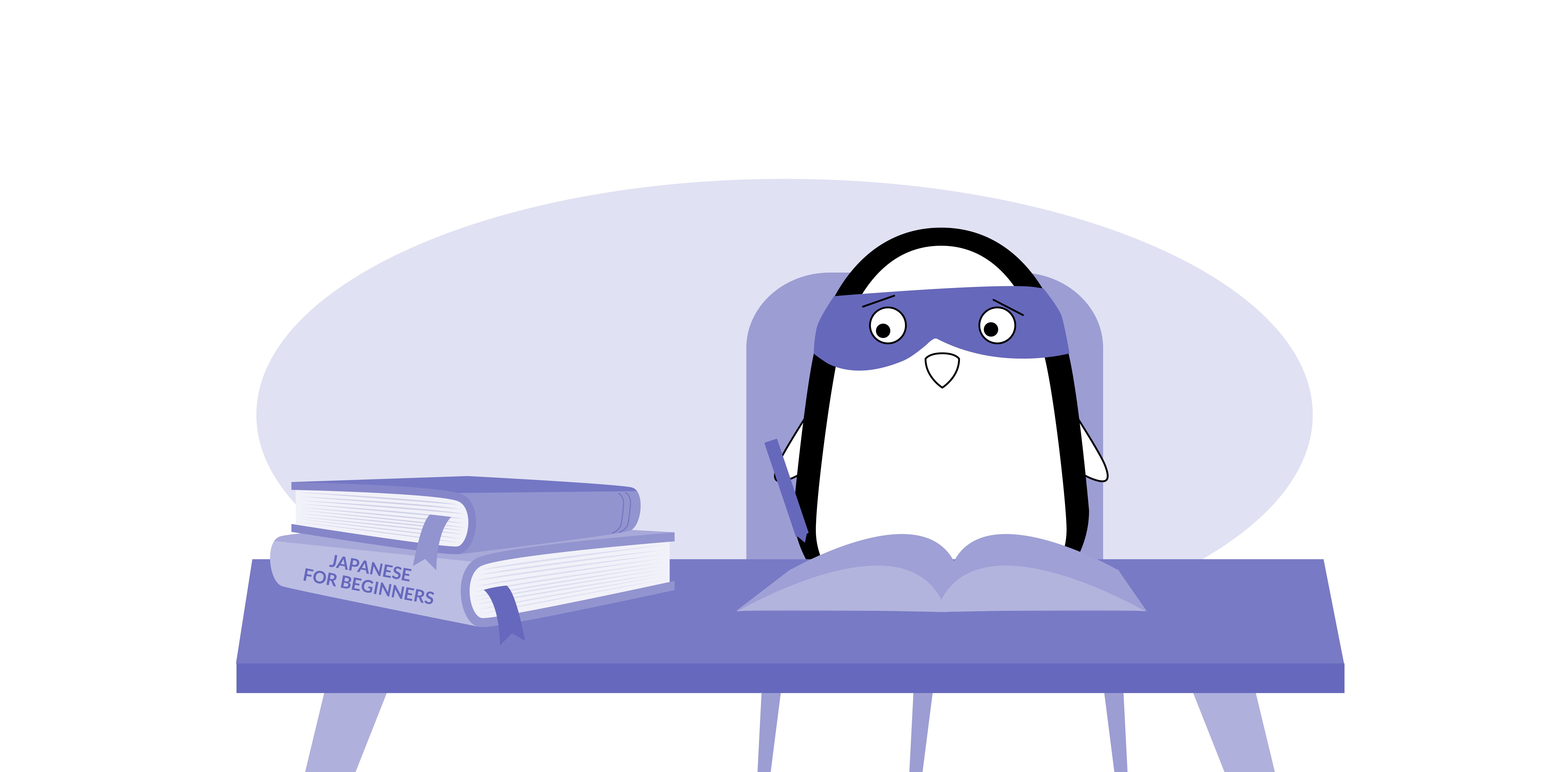
Learning a new language is an adventure that promises access to a different culture and opens pathways to countless personal and professional opportunities. Among the myriad languages available for exploration, Japanese stands out for its unique script, rich cultural nuances, and the growing global influence of Japan.
For adventurous language enthusiasts, the question isn't simply if they should learn Japanese but rather how long it will take to master this complex and beautiful language. A complete novice should expect to spend around 150-200 hours to reach a beginner level in basic Japanese. But, when can you expect to reach Japanese fluency?
In this comprehensive guide, we'll unpack the linguistically labyrinthine path of learning Japanese. We'll consider various factors that can affect your pace, demystify the timelines of language acquisition, and offer strategies to make your learning process efficient and enjoyable. Let’s dive in!
Learn languages with stories by Langster
First Things First: How Long Does It Take to Learn a Language?
The answer to this question largely depends on the language you want to learn.
As an English speaker, learning a Romance language like Spanish, French, or even Dutch will be easier because of shared vocabulary and grammar structures. All in all, you will need 480-720 hours to reach basic fluency in a new language.
Realistic Timelines & Expectations for Learning Japanese
Japanese is drastically different from English in terms of both writing and speaking, making it one of the most difficult languages for English speakers to learn.
According to the US Department of State, the Japanese language is classified as a Category IV language, requiring approximately 88 weeks — or 2,200 hours — of study to reach professional working proficiency. This puts it on par with languages like Arabic, Korean, and Mandarin Chinese.
General Timeline Estimates for Different Proficiency Levels
While individual variation is significant, there are some rough guidelines you can follow.
Estimated study time for the Japanese Language Proficiency Test (JLPT) on the N1 level (the hardest of all five levels) will require 1700-2600 hours from students with kanji knowledge (e.g., speakers of Chinese or Korean) and 3000-4800 hours from students with no prior kanji knowledge.
Here’s a quick table for further reference:
| Level | Students with kanji knowledge | Students without prior kanji knowledge |
|---|---|---|
| N1 | 1700-2600 hours | 3000-4800 hours |
| N2 | 1150-1800 hours | 1600-2800 hours |
| N3 | 700-1100 hours | 950-1700 hours |
| N4 | 400-700 hours | 575-1000 hours |
| N5 | 250-450 hours | 325-600 hours |
| Level | Students with kanji knowledge | Students without prior kanji knowledge |
|---|---|---|
| N1 | 1700-2600 hours | 3000-4800 hours |
| N2 | 1150-1800 hours | 1600-2800 hours |
| N3 | 700-1100 hours | 950-1700 hours |
| N4 | 400-700 hours | 575-1000 hours |
| N5 | 250-450 hours | 325-600 hours |
Advanced fluency and mastery are often measured in terms of years rather than hours, as they involve continuous learning and engagement with the language in context and culture.
Stages of Japanese Proficiency
Like any language, Japanese proficiency can be broken down into several stages, each with its own challenges and milestones.
Basic Conversational Skills
At the outset, you'll focus on the fundamentals: the Japanese alphabet and writing systems, basic grammar patterns, and essential vocabulary.
This phase sets the groundwork for all future learning and is where you'll develop the ability to construct simple sentences and engage in introductory conversations.
Intermediate Proficiency
In the intermediate stage, you'll expand your vocabulary and refine your grammar. You'll begin to tackle more complex sentence structures and express more nuanced ideas.
This is also the stage where your listening skills will be put to the test, as you start to engage with Japanese media and conversation partners.
Advanced Fluency and Mastery
Achieving an advanced level of fluency in Japanese is a substantial undertaking. By this stage, you should be comfortable with a wide range of vocabulary and complex grammatical structures.
You'll be able to express yourself eloquently and understand the subtler points of the language, including idiomatic expressions and cultural references, that are essential for truly honing your Japanese skills.
The Efficiency of Language Learning Hours
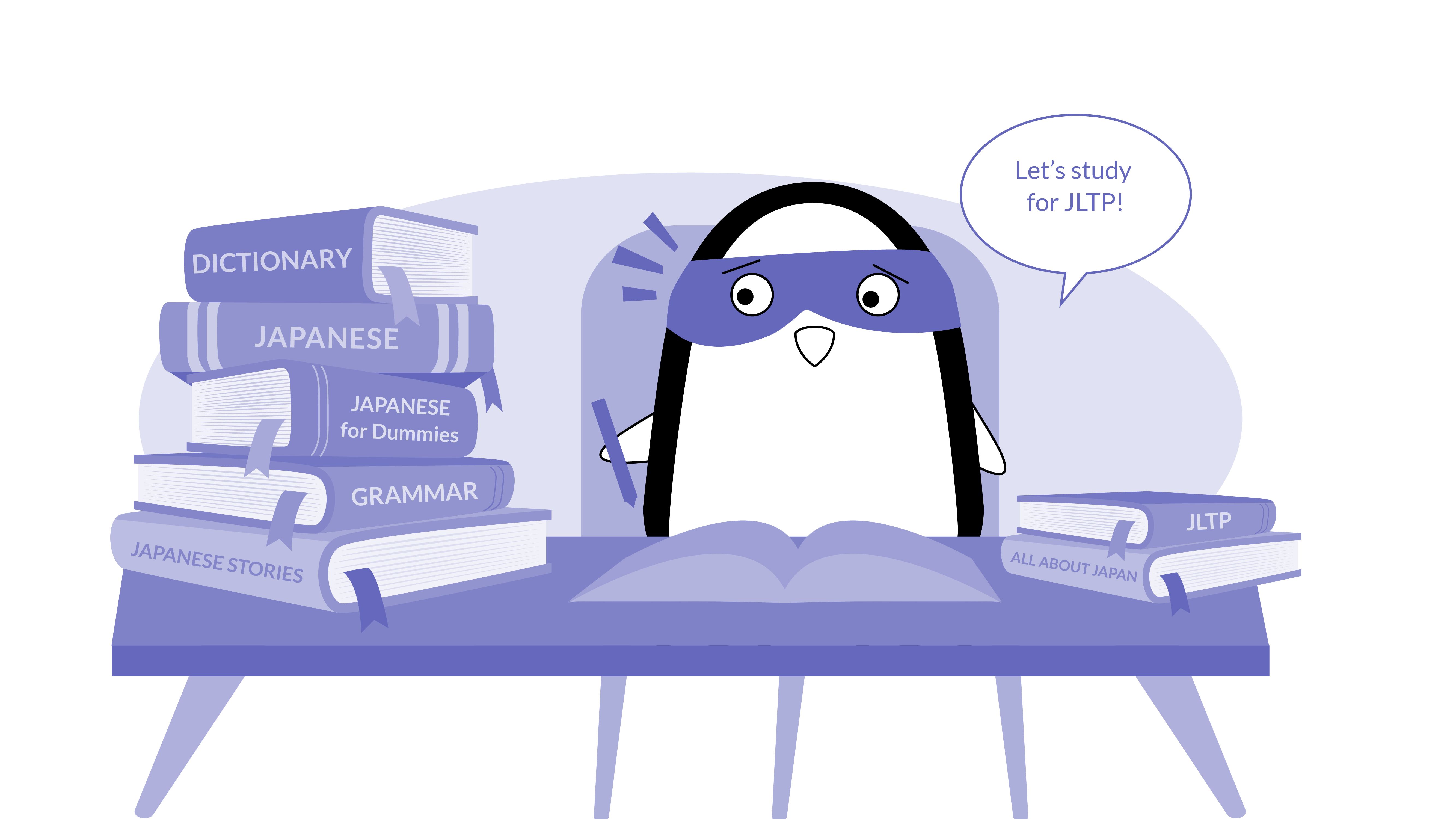
When we talk about the 2,200 hours needed to learn Japanese, it's crucial to distinguish between the quality and quantity of study time.
Language learners often mistakenly believe that more hours spent taking a Japanese class or buried in textbooks directly correlate with greater language proficiency. However, this isn't necessarily the case, especially for a contextual and cultural language like Japanese.
The reality is that many “hours” spent learning can be inefficient or wasted if they don't target the most vital language skills. For instance, spending numerous hours studying grammar and vocabulary in a classroom could offer diminishing returns if those lessons aren't applied in practical, conversational settings.
The inability to actively practice Japanese outside an academic environment is a common issue for many students, which significantly hinders progress in their Japanese learning journey.
For this reason, embracing a more holistic approach to language learning — by incorporating speaking, listening, reading, and writing from day one — is the only way to see genuine gradual improvements.
Factors Affecting Learning Duration
It's also essential to understand that these estimates are just that — estimates. Each learner is different, and there are a myriad of variables that can affect the time it takes to learn Japanese.
Your prior language learning experience, access to native Japanese speakers and language exchange opportunities, and even aspects of your personal life can all play a part. What's important is to be patient with the process and to celebrate the progress you make, however small it may seem at the time.
There are several common factors that decide how fast you will learn to speak Japanese:
Language Complexity
Japanese has a reputation for being a challenging language to learn, particularly for Westerners accustomed to the Latin alphabet and grammatical structures that diverge greatly from those in Japanese. The complexity stems from several unique features:
- Three writing systems. Hiragana, Katakana, and Kanji comprise the Japanese writing system. Each serves a specific purpose, and the extensive use of Kanji, a system of characters borrowed from Chinese, adds another layer of complexity. On average, learning kanji can take anywhere from two to three years.
- Japanese pronunciation and intonation. Japanese phonology, including distinctive vowel sounds and a pitch accent, can be quite different from many learners' mother tongues, leading to a steeper learning curve. For this reason, if you want to achieve a near-native Japanese speaker level, you must practice speaking Japanese with utmost dedication.
- Grammatical structure. Japanese grammar is notably different from English, particularly in verb conjugation, sentence construction, and the absence of plurals and articles for Japanese words, which can be challenging to grasp initially.
These features, while daunting, are by no means insurmountable obstacles. They do, however, require patience, practice, and a methodical approach to learning.
Japanese Body Language and Culture
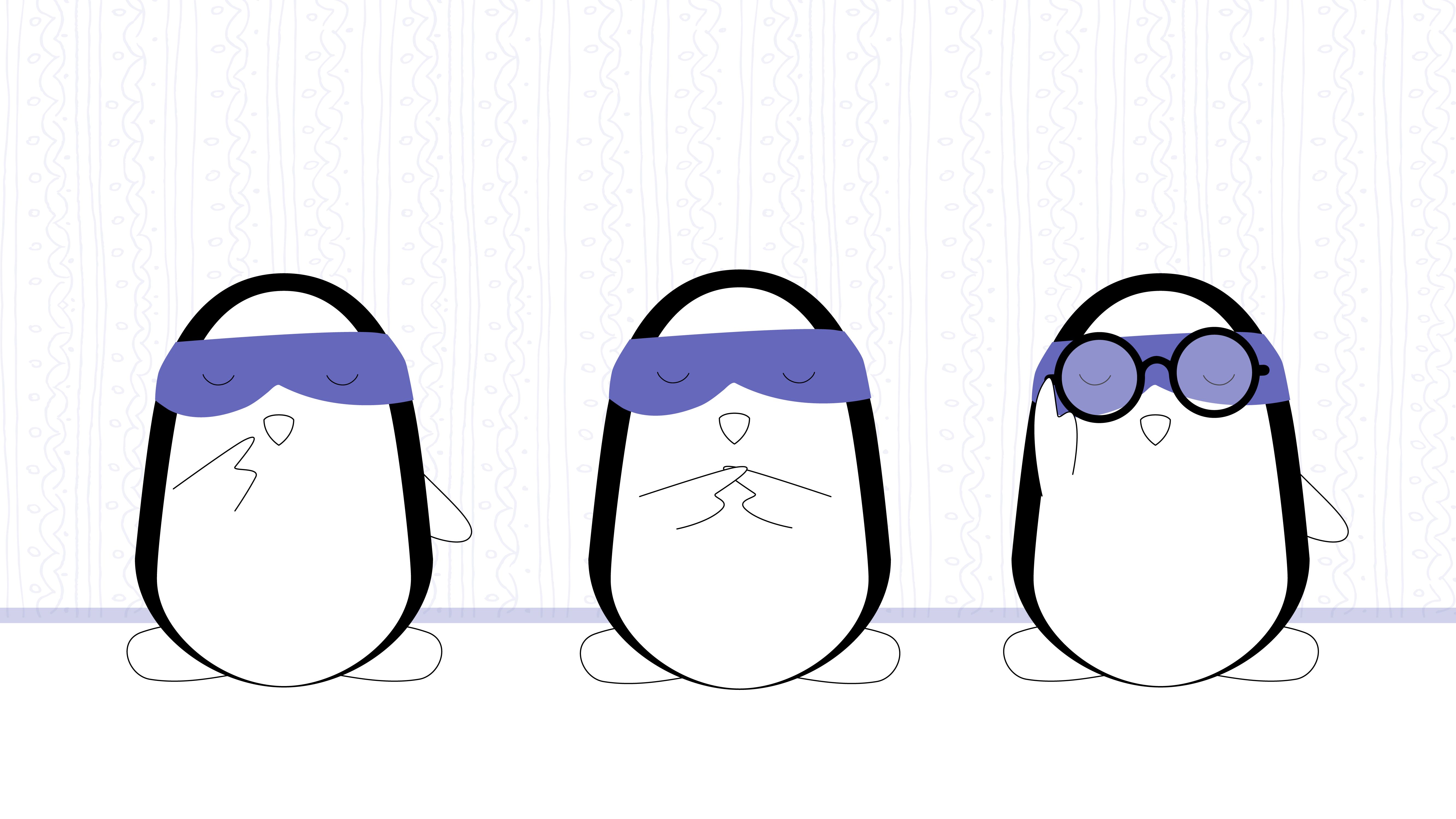
As in any language, non-verbal cues can significantly influence the meaning behind words. In Japanese communication, body language and cultural norms play an essential role in conveying respect, politeness, and understanding.
Learning these subtleties takes time but is crucial for building rapport with native speakers.
Previous Language Learning Experience
Your familiarity with other languages — and even your native language — can also impact your Japanese learning journey.
For instance, if you're already fluent in another language, you may find some grammatical concepts easier to grasp because your brain has already been primed for a foreign language.
Individual Learning Style
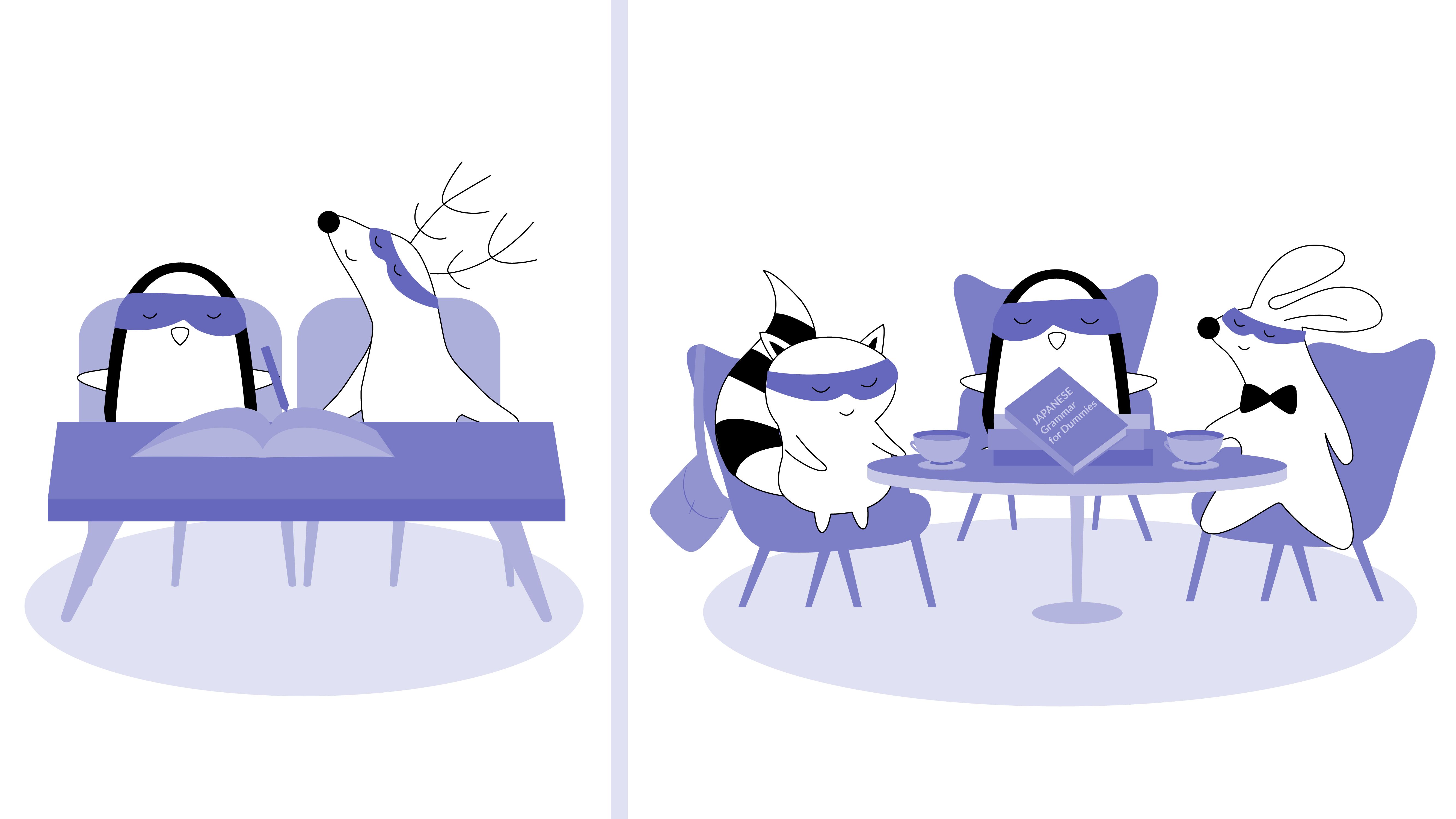
Your unique learning style can be a significant determinant of how long it will take you to achieve fluency.
Some individuals may excel in memorizing kanji due to visual memory, while others may struggle with it. Likewise, those with an aural learning preference might find mastery of intonation and pitch accents easier than their kinesthetic counterparts.
Furthermore, the type of learning method you prefer — be it online Japanese lessons with a tutor or offline classes with fellow Japanese students — can also affect your progress.
As such, by understanding your learning strengths and weaknesses, you can tailor your study plan to maximize efficiency.
Time Commitment and Consistency
How much time are you willing to dedicate to learning Japanese each day?
Your daily study habits will impact your overall progress more than you might expect. Consistency is key — even if your study sessions are relatively short, regular exposure to the language helps reinforce learning and prevent regression.
Finding a balance between immersion and burnout is essential; remember, it's a marathon, not a sprint.
How to Make Learning Japanese Easier & Faster
With the challenges and milestones mapped out, it's time to anchor your approach with actionable advice on how to learn Japanese effectively.
Find Your Purpose
Before you even begin to ponder the duration of your Japanese learning odyssey, you should consider why you're hitting the books (or screens). Learning Japanese isn't just about mastering vocabulary and grammar — it's an immersion into a culture steeped in tradition and cutting-edge technology.
Japan's unique position as an epicenter for both ancient practices like tea ceremonies and modern phenomena like anime and video games means that your Japanese language quest is a multifaceted endeavor.
The significance of learning Japanese can be highly personal. For some, it's about connecting with their heritage; for others, it's a business imperative in a global market dominated by Japanese companies. And, of course, there are many individuals who are simply captivated by the language, whether due to their love of Japan's exquisite cuisine, historical landmarks, or its thriving pop culture.
Whatever the impetus, understanding the time investment involved is crucial for setting realistic expectations and keeping yourself motivated.
Immersion Techniques
Immerse yourself in the language as much as possible.
Change the language settings on your devices, listen to Japanese music, watch anime and Japanese TV shows, read Japanese message boards, and seek opportunities to talk with native speakers to significantly accelerate your learning. These techniques help acclimate you to the rhythm of the language and the various cultural contexts in which it is used.
The more immersive your experience, the more natural your language acquisition is likely to be.
Utilizing Language Learning Apps & Resources
We live in an age where language learning resources are abundantly available. Language learning apps like Duolingo, Rosetta Stone, and our Langster app alike can all be valuable tools, providing structured lessons and gamification to keep you engaged.
Online platforms offer access to virtual classrooms, language exchange opportunities, and a vast array of Japanese learning materials, from textbooks to podcasts.
Continuous Practice and Cultural Exploration
Never underestimate the power of consistent practice. Incorporating Japanese into your daily life, whether through conversation, reading, or listening, will keep your skills sharp and your motivation high.
Furthermore, don't restrict your study to language alone. Exploring Japanese culture, from literature to cuisine, helps connect your language learning with broader cultural understandings, making the endeavor more meaningful and enjoyable.
Conclusion

The journey to learning Japanese is a rich and rewarding one. Whether you're drawn to the intricate beauty of Kanji, the melodic tones of the spoken language, or the depth of culture that shimmers through every syllable, the time you spend on this pursuit is an investment with immeasurable returns.
Remember that your path is unique, and comparisons with others only serve to limit your own progress. Stay consistent in your study, remain open to the wealth of resources at your disposal, and above all, keep the flame of your curiosity and passion for the language burning bright.
This is just the beginning of an incredible linguistic and cultural voyage. Whether you reach your destination in one year or ten, the fact that you're on the road at all is an accomplishment.
Keep learning, keep exploring, and soon enough, the question of how long it takes to learn Japanese will be swept away by the joy of simply being able to speak it.
Learn languages with stories by Langster







